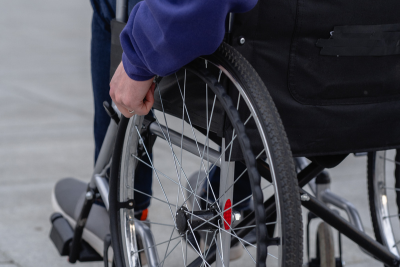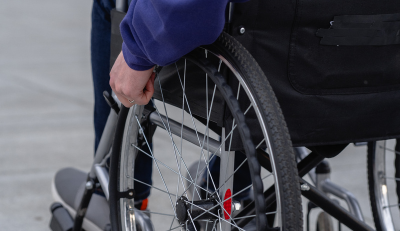Can You Work While on Federal Disability? A Complete Guide
Navigating federal disability benefits can feel like walking a tightrope. You’re grateful for the support, but what if you want to return to work without risking your benefits? The good news: yes, you can work while on federal disability, but understanding the rules and guidelines is crucial.
This guide covers essential details about working while receiving federal disability benefits, including eligibility, income rules, and strategies for maximizing your opportunities.
Key Takeaways
- Can you work while on federal disability? Yes, but rules vary for SSDI, SSI, and FERS Disability Retirement.
- The SSA provides programs like Trial Work Periods and Ticket to Work to support beneficiaries in re-entering the workforce.
- Passive income affects benefits differently than earned income, and planning is essential to avoid penalties.
- Open communication with the SSA and financial planning are key to success.
Understanding Federal Disability Retirement
Federal Disability Retirement offers a lifeline for federal employees who cannot continue working due to health issues. Managed by the Office of Personnel Management (OPM), this program allows eligible individuals to receive a retirement annuity while exploring other employment opportunities.
To qualify:
- You must have served at least 18 months in federal employment.
- Your medical condition must render you unable to perform your current job duties.
Flexibility to Work: Approval doesn’t mean you’re barred from other employment. Federal Disability Retirement enables recipients to seek new roles that accommodate their circumstances, providing a pathway to stay engaged in the workforce while receiving financial support.
Eligibility for Federal Disability Benefits
Eligibility for Social Security Disability Insurance (SSDI) or Supplemental Security Income (SSI) depends on:
- Work history and credits (for SSDI).
- Medical evidence proving significant limitations in your ability to engage in Substantial Gainful Activity (SGA).
The SSA evaluates both physical and mental health impairments comprehensively. Benefits are awarded based on how your condition impacts daily functioning and earning potential.
Key Reminder: Benefits may be denied if the SSA determines that you can adjust to other available work, not just your past roles.
Rules for Working While on Federal Disability Benefits
The SSA encourages beneficiaries to test their ability to work through programs like:
- Trial Work Period (TWP):
- Allows up to 9 months of work within a rolling 60-month window, regardless of earnings.
- Benefits remain unaffected during this time.
- Income Reporting:
- Changes in work or income must be reported promptly to avoid overpayments.
- Earnings above the SGA threshold post-TWP may reduce or terminate benefits.
Remember: The SSA’s goal is to support a smooth transition back to work, not to penalize beneficiaries.
SSDI and Working: Programs and Protections
For SSDI recipients, working while on federal disability is feasible thanks to programs like:
- Ticket to Work:
Connects you with resources and employment services to support your return to the workforce. - Continued Medicare Coverage:
Ensures health insurance remains available even after benefits are reduced.
Maximizing your opportunities while maintaining benefits involves adhering to SSA rules, such as staying within the SGA income limits and undergoing periodic medical reviews to maintain eligibility.
SSI and Working: Income and Incentives
For SSI recipients, earned income impacts monthly payments, but incentives like the Earned Income Exclusion provide some breathing room.
Benefits of Returning to Work with SSI:
- Medicaid often continues under specific conditions, providing essential healthcare coverage.
- By reporting income changes accurately, you can avoid overpayments and repayment obligations.
Understanding the SSA’s income formula ensures you transition to work while maximizing SSI benefits.
Passive Income and Federal Disability Benefits
Passive income, such as rental income or investments, is treated differently from earned income by the SSA. While it doesn’t directly affect your work-related eligibility, it may impact payment amounts, requiring careful planning.
Steps to Navigate Passive Income:
- Consult a financial advisor to understand the implications.
- Accurately report all passive income to the SSA to maintain compliance.
Resources for Exploring Work Opportunities
If you’re asking, “Can you work while on federal disability?” the answer lies in leveraging available resources:
- SSA Programs: Trial Work Period, Ticket to Work, and vocational rehabilitation services.
- Legal Aid: For guidance on complex regulations.
- Financial Planners: To develop strategies for balancing work and benefits.
By taking advantage of these resources, you can make informed decisions about returning to work while preserving your federal disability benefits.
Conclusion: Can You Work While on Federal Disability?
Yes, you can, but success requires careful planning and adherence to SSA regulations. By understanding your options, maintaining transparent communication with the SSA, and seeking professional guidance, you can re-enter the workforce without sacrificing your benefits.
Frequently Asked Questions
1. How many hours can you work on federal disability?
You can work up to 20 hours weekly, but earnings must remain below the SSA’s SGA limits.
2. Can you work while on FERS disability?
Yes, but exceeding income limits may reduce or terminate benefits.
3. What happens if you work while on disability?
Earnings above the allowable limit may lead to reduced or discontinued benefits.
4. How much money can you make on SSI disability?
Earned income thresholds vary, but exclusions allow you to earn a set amount before benefits are affected.







